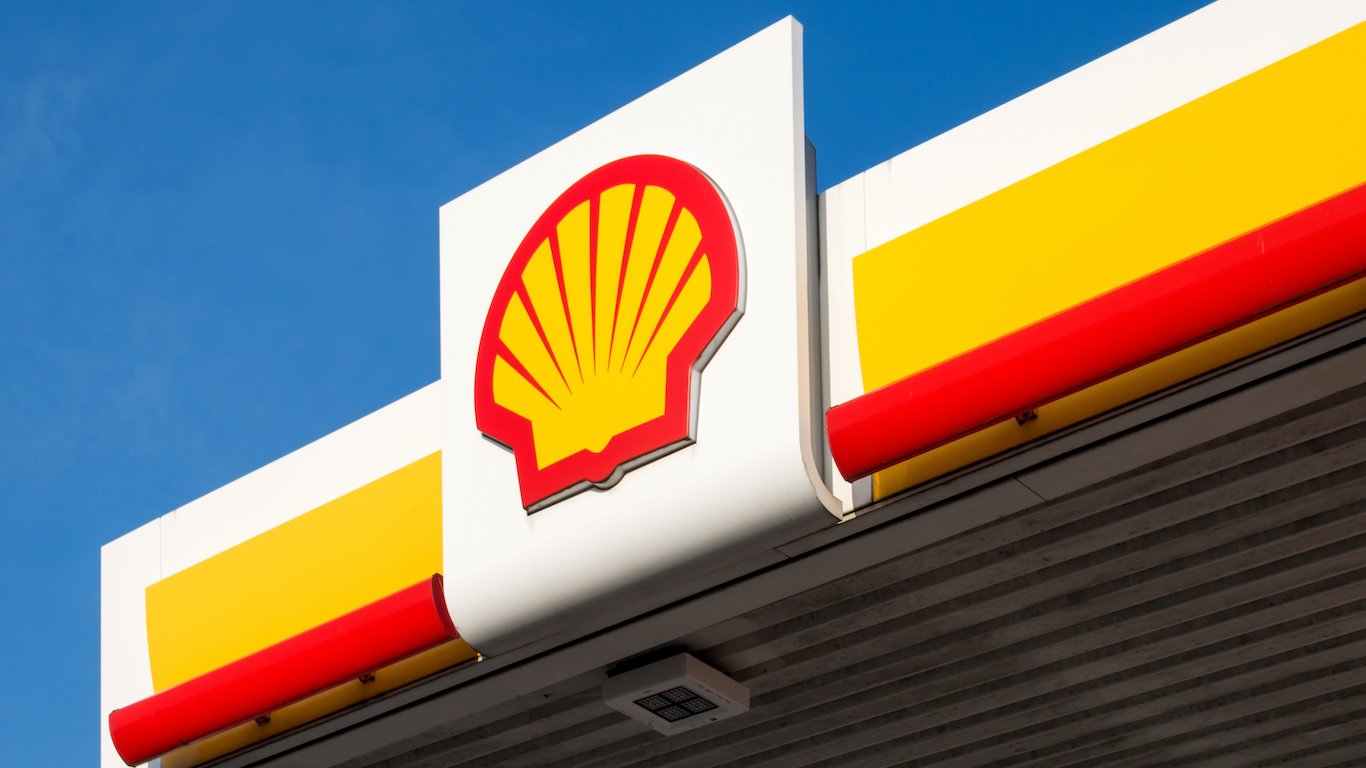Apple Analysts and Stock Buybacks Playing Role in the Race to a $1 Trillion Market Cap
August 1, 2018 by Jon C. OggApple Inc. (NASDAQ: AAPL) remains the world’s most valuable public company after earnings. After beating earnings expectations, it turns out that Apple’s quest to a $1 trillion market cap has taken the stock to $200 for the first time, after you adjust for the numerous Apple stock splits that have been seen over time.
24/7 Wall St. has covered the Apple earnings report in detail, but the reality is that we have tracked multiple analyst calls looking for more positive share price moves ahead.
The iPhone-maker reported that it had $2.34 in earnings per share (EPS) on $53.3 billion in revenue. That compares with consensus estimates from Thomson Reuters that called for $2.18 in EPS on revenue of $52.34 billion. In the same period of last year, Apple posted EPS of $1.67 on revenue of $45.41 billion. Apple returned nearly $25 billion to investors through its capital return program during the quarter, including $20 billion in share repurchases.
We have included summaries on the multiple analyst calls, but we have also gone back over time to show just how much the billions of dollars worth of stock buybacks have acted to shrink its number of shares. As a reminder, a shrinking share base from buybacks also makes it harder for a company’s market cap to grow because the calculation of a market cap is the number of shares outstanding times its current share price. If you shrink your share count by 10% while simultaneously seeing a 10% share price gain, the market cap is more or less unchanged at the end of the day.
Merrill Lynch reiterated its Buy and kept its $230 price objective flat. Its investment rational gave a six-reason summary as to why investors should own Apple shares:
1) growth in the services business that will drive higher margins,
2) continued long-term opportunity in emerging markets including China,
3) potential share gains from lower-end iPhones,
4) a steadier iPhone cycle that should drive higher selling prices and gross margins,
5) benefits from tax law changes,
6) optionality in cash balance, revenue sources like Apple Pay, Apple Watch, home/health kit, etc., that will take time to mature.
CFRA (S&P) reiterated its Buy rating and raised its target to $220 from $210. CFRA said of the future quarters and the outlook:
While we think Apple is benefiting from higher iPhone selling prices, we see tougher comps in Fiscal Year 2019. As a result, we still conservatively forecast no iPhone growth in Fiscal Year 2019 but are optimistic about upcoming device launches. We like Apple’s pipeline in wearables (e.g. AR glasses, aesthetic changes to Apple Watch, AirPods refresh, AirPower) and potential opportunities in Services (e.g. original video content). We think Apple’s potential to grow subscription-based service offerings remains key (Apple Music growth over 50% in Jun-Q). We remain optimistic about free cash flow generation, which we expect to be $60 billion to $70 billion in each of the next 3 years and help reduce its share count by 20% to 25% over that span.
More analyst summaries have been included below:
- BMO Capital Markets reiterated its Market Perform rating and raised the price target to $199 from $184.
- Canaccord Genuity reiterated its Buy rating and raised its target price to $220 from $208.
- Deutsche Bank reiterated its Hold rating and raised the price target to $175 from $165.
- Independent Research reiterated its Buy rating and raised its target price to $226 from $220.
- Needham reiterated its Buy rating and raised its target to $220 from $210.
- Nomura/Instinet kept its Neutral rating but raised the target to $190 from $175.
- RBC Capital Markets reiterated its Outperform rating and raised its target to $225 from $210.
- UBS reiterated its Buy rating and raised its target to $215 from $210.
24/7 Wall St. also went back to look at just how stock buybacks and efforts to lower the share count can play a role in the race to a $1 trillion market cap. Past reports show that Apple’s share count has come down, and SEC filings show the following:
- 5.575 billion shares issued and outstanding as of October 9, 2015
- 5.332 billion shares issued and outstanding as of October 14, 2016
- 5.134 billion shares issued and outstanding as of October 20, 2017
The presentation for the fiscal third quarter of 2018 indicated that there were 4.926 billion shares diluted and 4.882 billion basic shares used for the per-share calculations.
Another factoid for the Apple investors and enthusiasts is that Apple’s gain on Wednesday allowed it to surpass Home Depot as the fifth largest weighting in the Dow Jones industrial average, now that its share price went above $196.
Apple shares were last seen trading up just over 5% at $200.05, and the trading volume of 44 million shares at 12:50 p.m. Eastern Time was almost double a normal day’s trading volume.
Sponsored: Find a Qualified Financial Advisor
Finding a qualified financial advisor doesn’t have to be hard. SmartAsset’s free tool matches you with up to 3 fiduciary financial advisors in your area in 5 minutes. Each advisor has been vetted by SmartAsset and is held to a fiduciary standard to act in your best interests. If you’re ready to be matched with local advisors that can help you achieve your financial goals, get started now.
 24/7 Wall St.
24/7 Wall St.